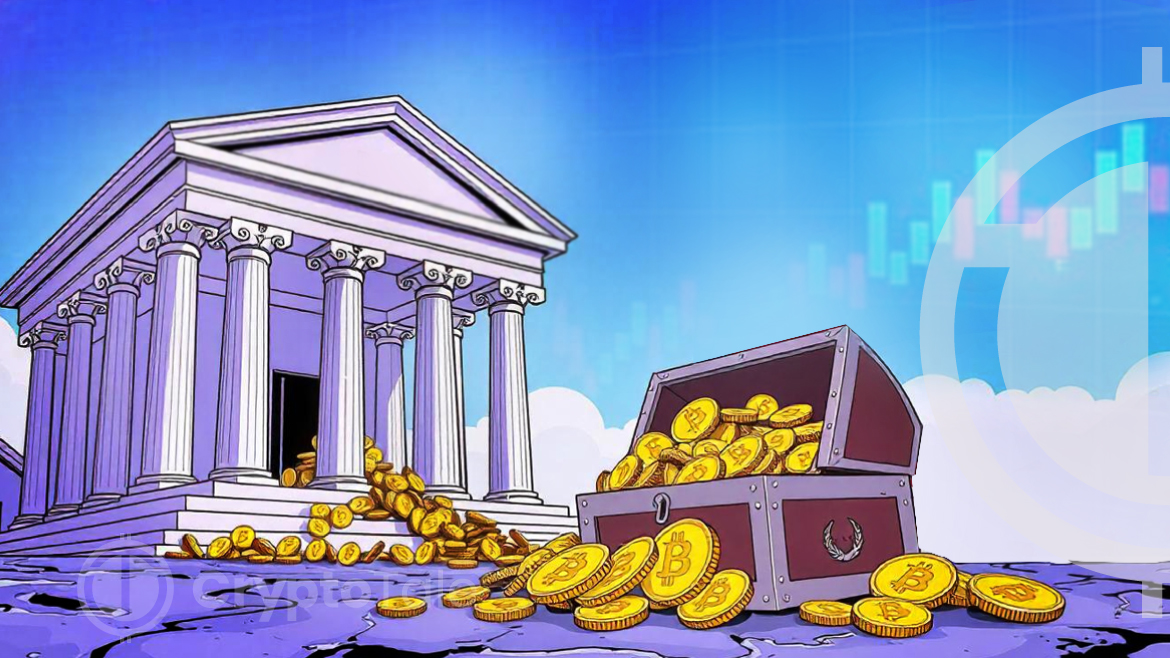
Bitcoin has been grabbing attention over the past weeks, solidifying its dominance in the crypto market as it hovers around the significant $100k mark. Not only individual investors and companies but governments are also mulling over investing in Bitcoin to hedge against inflation. The cryptocurrency evolved from a virtually worthless asset, trading at less than $0.01 in 2009, to a globally recognized store of value. Global powers like the United States, Russia, and Brazil are reconsidering strategic reserve holdings, intending to add Bitcoin to their portfolio.
According to the latest findings, more than 13 countries hold cryptocurrencies, with the US owning the largest. The US leads, holding an impressive 208,100 BTC, which accounts for a staggering 67.9% of the total Bitcoin reserves. The United Kingdom stands second with a notable holding of 61,200 BTC. China is ranked third with a stash of 15,000 BTC.
However, El Salvador, the first country to recognize Bitcoin as a legal tender, is the only nation that makes direct BTC purchases. The country, under President Nayib Bukele, has purchased around 5,900 Bitcoins, along with managing minor BTC mining operations. As per the data revealed by Bukele on December 5, 2025, the country’s Bitcoin holdings were valued at $603.34 million, reflecting a 117.74% increase in value year-to-date. The data highlights El Salvador’s impressive returns from Bitcoin investments as the crypto surged past $100,000. With an initial investment of $269.74 million, the country yielded profits of $333.59 million.
Unlike El Salvador’s massive BTC purchases, other major countries accumulated Bitcoin through law enforcement seizures and confiscations. For instance, a significant portion of the US’ Bitcoin holdings originated from seizures linked to illicit activities. Notably, the 2022 Silk Road and the 2016 Bitfinex hacks contributed substantially to the US’ Bitcoin reserves, with 50,676 BTC and 94,636 BTC traced to these incidents, respectively.
While China and the UK also rely on confiscations, countries like Bhutan, Norway, and Switzerland have adopted more subtle approaches to BTC accumulation. Bhutan and Ethiopia have established state-funded mining operations to build their Bitcoin reserves. At the same time, Norway has leveraged its sovereign wealth fund to gain exposure to the cryptocurrency. Bitcoin exchange River stated,
Buying Bitcoin directly comes with political risks and is more difficult to carry out in secret. Instead, there are more private and strategic options available to stack Bitcoin.
A growing trend around this time is characterized by a significant shift in the global economic landscape as countries compete to adopt Bitcoin as a strategic reserve. One of the notable developments is US-elect President Donald Trump’s advocacy for Bitcoin. During his 2024 election campaigns, he accepted Bitcoin donations and proposed a historic Bitcoin reserve strategy. The appointments of SEC Chair Paul Atkins and Crypto Czar David Sacks ahead of Trump’s inauguration have boosted confidence in the US’ future with crypto.
Meanwhile, Brazil introduced a bill to establish the Sovereign Strategic Bitcoin Reserve (RESBit) as part of the country’s Bitcoin reserve initiative. Filed on November 25, the bill intends to build a national Bitcoin reserve holding up to 5% of Brazil’s international reserves. Federal Deputy Eros Biondini stated in the proposal that the move could “reduce Brazil’s exposure to exchange rate fluctuations and geopolitical risks, increasing economic resilience.”
Russia has also initiated the scheme, with Anton Tkachev, a State Duma member, submitting a formal appeal to create a Bitcoin reserve. The proposal read,
In conditions where access to traditional international payment systems is limited for countries under sanctions, cryptocurrencies become practically the only tool for international trade. The Central Bank of Russia is already preparing to launch an experiment on cross-border payments in cryptocurrency.
Despite China’s ban on crypto, there is a larger tendency for the country to join the global forces in adopting Bitcoin. Binance founder Changpeng Zhao, during the Bitcoin MENA conference in Abu Dhabi, stated that China’s urge to establish a Bitcoin reserve is “inevitable.” He added that Bitcoin is the “only hard asset.”
Russian Lawmaker Proposes Bitcoin Reserve Amid SanctionsThe increasing demand for Bitcoin and governments’ choice of crypto as the national reserve highlights its potential as a legitimate asset. With more countries emerging to adopt Bitcoin, the pioneer crypto has become a critical asset in the pursuit of economic stability and growth. It remains to be seen if crypto-restrictive countries like China will adopt Bitcoin in the future.














